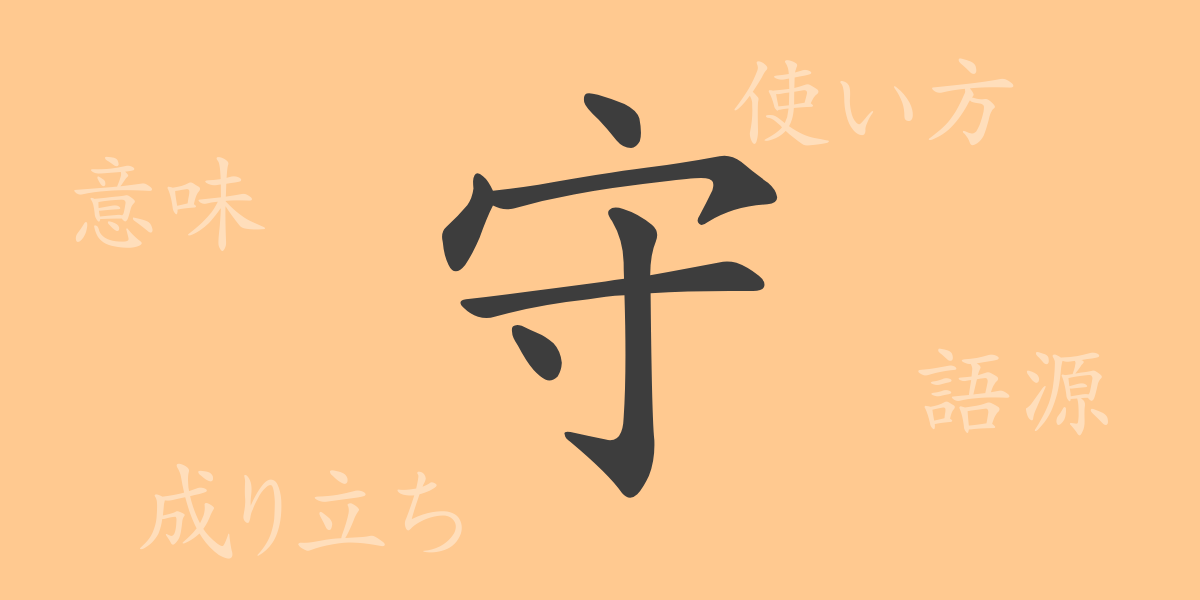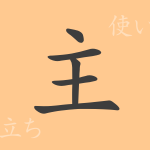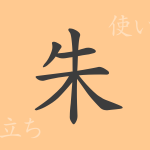Japanese contains numerous kanji characters that carry rich meanings with just one symbol. Among them, “守(まもる)” is one of the commonly used kanji in daily life. This article delves into the origins of “守(まもる),” its meanings and usage, its readings and stroke count, and the idioms, phrases, and proverbs that include “守(まもる).” Join us on this journey to glimpse a part of Japan’s written culture.
Origin of 守(まもる) (Etymology)
The kanji “守(まもる)” evolved from ancient Chinese pictographs. Originally, it was a pictograph representing a city wall, with the shape “宀(うかんむり)” indicating a “roof.” Over time, this character transformed to encompass meanings like protection and guardianship. Since ancient times, the act of guarding and protecting has been deeply connected to people’s lives, highlighting the significance of this kanji.
Meanings and Usage of 守(まもる)
“守(まもる)” is used in forms like “守る(まもる),” “守り(まもり),” and “守れ(まもれ),” referring to acts of protecting or guarding something. It can also mean physical defense or security, as seen in words like “守衛(しゅえい)” (guard) and “守備(しゅび)” (defense). Additionally, it is commonly used to denote keeping promises or adhering to rules.
Readings, Stroke Count, and Radical of 守(まもる)
The kanji “守(まもる)” is not only rich in meaning but also a subject of study in terms of its readings and stroke count.
- Readings: The on’yomi (音読み) is “シュ,” and the kun’yomi (訓読み) are “まも.る,” “まも.り,” and “も.り.”
- Stroke count: “守(まもる)” consists of 11 strokes.
- Radical: The radical is “宀(うかんむり),” which represents a roof.
Idioms, Phrases, and Proverbs Using 守(まもる)
There are numerous idioms, phrases, and proverbs in Japanese that include “守(まもる).” Examples range from everyday expressions like “家を守る(いえをまもる)” (to protect the house) and “秘密を守る(ひみつをまもる)” (to keep a secret) to larger concepts like “国を守る(くにをまもる)” (to defend the country). Additionally, idioms like “守株(しゅしゅ),” meaning to stick to outdated methods, “守旧(しゅきゅう),” meaning conservatism, and “守護神(しゅごしん),” meaning guardian deity, are also commonly used. Proverbs such as “城を守るよりも出て攻めろ(しろをまもるよりもでてせめろ)” (it’s better to go on the offensive than to defend a castle) illustrate strategic thinking.
Conclusion on 守(まもる)
Through this article, we hope you have gained a deeper understanding of the multifaceted charm of the kanji “守(まもる).” This character, which reflects the depth of Japanese written culture, is deeply rooted in our lives, conveying important values through language and culture. Next time you encounter “守(まもる)” in your daily life, recalling its history and meanings may help you appreciate the weight of words even more.

























